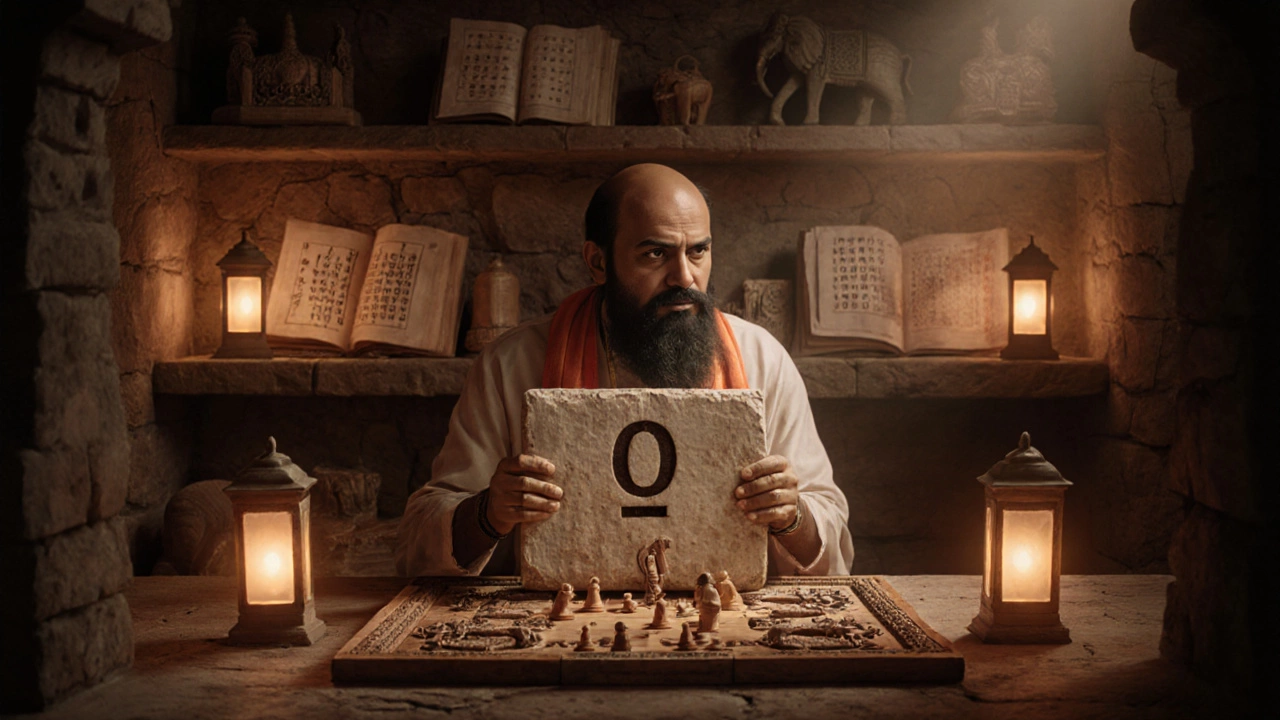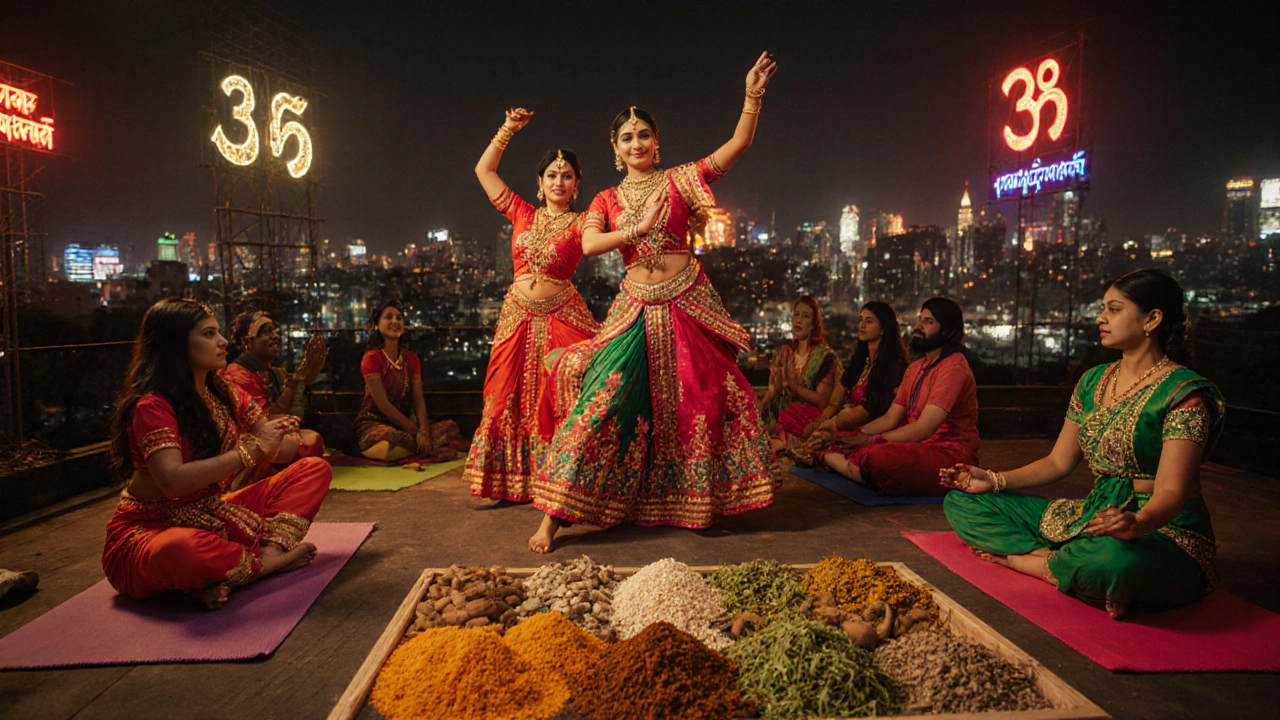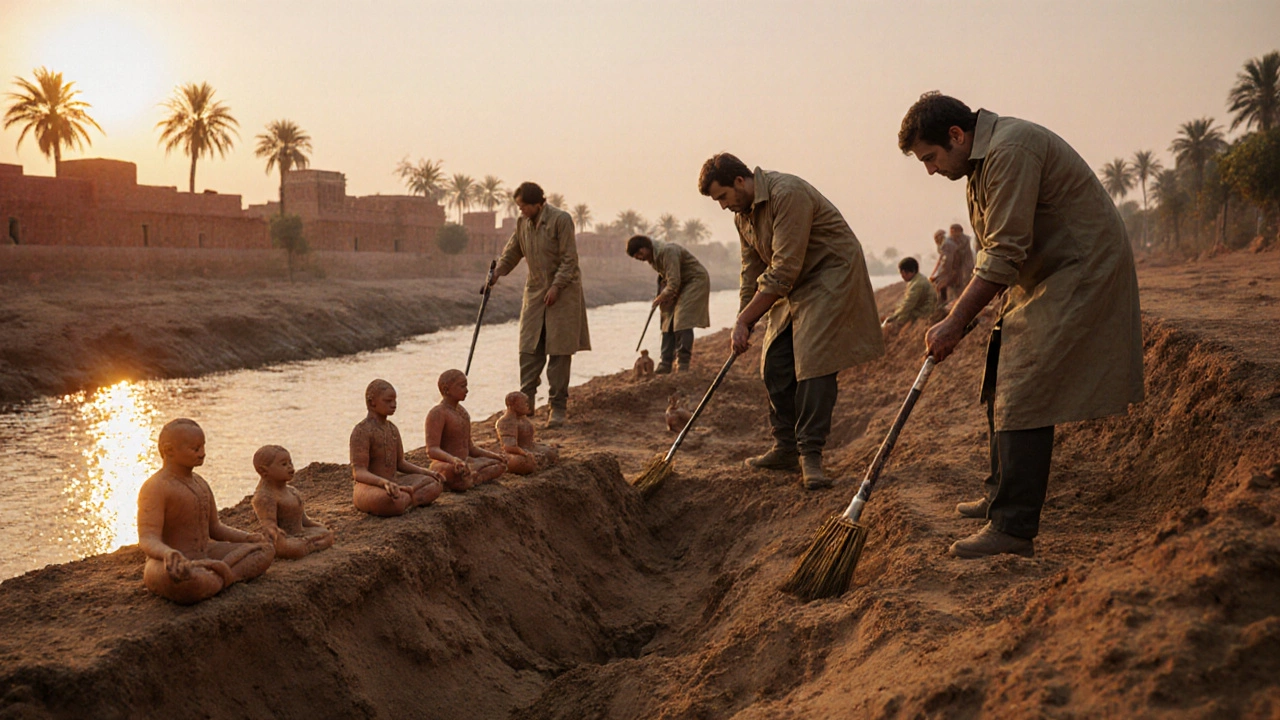India's Innovation Timeline
Key Indian Inventions Timeline
Explore the chronological development of India's most influential innovations from ancient times to the present.
Yoga
Ayurveda
Decimal System & Algebra
Chess (Chaturanga)
Zero (Symbol)
Bollywood
Quick Takeaways
- India is the birthplace of yoga, Ayurveda, zero, chess, and several major world religions.
- Mathematical concepts like the decimal system and algebra also began here.
- Indian cinema, especially Bollywood, reshaped global entertainment.
- These innovations continue to shape health, education, and culture worldwide.
- Understanding India’s roots helps appreciate its lasting global impact.
When we talk about the India is a South Asian nation that has been the cradle of countless cultural, scientific, and spiritual innovations. From the bustling markets of Mumbai to the serene ghats of Varanasi, India has given the world ideas that still shape daily life. If you’ve ever wondered what the country actually gave birth to, you’re in the right place. Below is a low‑key tour of the most iconic inventions and traditions that started on Indian soil.
Yoga - The Ancient Path to Wellness
Yoga is a holistic practice that blends physical postures, breath control, and meditation. Archaeological findings from the Indus Valley (around 3000 BCE) show figurines in classic yoga poses, suggesting the discipline predates even the Vedic texts. Modern science backs up what sages claimed centuries ago: regular yoga can lower stress hormones, improve flexibility, and even boost brain health. That’s why you’ll find yoga studios popping up in every corner of the globe, from New York to Nairobi.
Ayurveda - The World’s First Health System
Ayurveda is an ancient system of medicine that focuses on balancing the body’s three doshas - Vata, Pitta, and Kapha. Compiled in the Sanskrit treatises Charaka Samhita and Sushruta Samhita (around 1000 BCE), Ayurveda introduced surgical techniques like rhinoplasty and cataract removal long before the West. Today, Ayurvedic herbs such as ashwagandha and turmeric are staples in natural‑health stores worldwide.
Zero - The Game‑Changing Number
Zero is the concept of ‘nothing’ that revolutionized mathematics. The symbol ‘0’ first appeared on a 9th‑century Indian inscription at the Chaturbhuj temple in Gwalior. By providing a placeholder, zero made arithmetic far easier and paved the way for algebra, calculus, and computer science. Without it, modern computing would simply be impossible.
Chess - A Strategic Legacy
Chess is a two‑player strategy game that evolved from the Indian game chaturanga. Dating back to the 6th century CE, chaturanga mimicked battlefield tactics with pieces representing infantry, cavalry, elephants, and chariots. As the game traveled along trade routes, it transformed into the chess we know today, influencing everything from military training to artificial‑intelligence research.

Decimal System & Algebra - Numbers Made Simple
The Decimal system is a base‑10 place‑value system that originated in India around the 5th century CE. Coupled with the invention of zero, it gave mathematicians a powerful tool for calculation. Indian scholars such as Brahmagupta and Bhāskara II also pioneered early concepts of algebra, solving quadratic equations centuries before their European counterparts.
World Religions - Spiritual Foundations
Four major world religions trace their roots to India:
- Hinduism is the oldest, with sacred texts like the Vedas dating back to 1500 BCE.
- Buddhism began with Siddhartha Gautama’s enlightenment under the Bodhi tree in the 5th century BCE.
- Jainism arose around the same time, emphasizing non‑violence and self‑discipline.
- Sikhism was founded by Guru Nanak in the 15th century, promoting equality and devotion.
Each of these traditions contributed philosophies, moral codes, and artistic expressions that still influence billions of lives today.
Sanskrit - The Mother of Many Languages
Sanskrit is an ancient Indo‑Aryan language that served as the liturgical tongue for Hinduism, Buddhism, and Jainism. Its systematic grammar, codified by Panini around the 4th century BCE, laid the groundwork for modern linguistic studies. Many South‑Asian languages, from Hindi to Thai, inherit vocabulary and structure from Sanskrit.
Bollywood - A Global Entertainment Powerhouse
Bollywood is the Hindi‑language film industry based in Mumbai. Since the 1930s, it has churned out over 2,000 movies a year, blending music, drama, and dance in a way that resonates worldwide. Actors like Shah Rukh Khan and movies such as "Dilwale Dulhania Le Jayenge" have become cultural icons far beyond India’s borders.

Putting It All Together - A Quick Reference Table
| Innovation | Approx. Origin | Historical Significance | Modern Influence |
|---|---|---|---|
| Yoga | ~3000 BCE | Spiritual & health practice | Wellness studios globally |
| Ayurveda | ~1500 BCE | First holistic medicine | Herbal supplements, spa treatments |
| Zero | 9th century CE | Revolutionized arithmetic | Computing, digital tech |
| Chess (Chaturanga) | 6th century CE | Strategic board game | E‑sports, AI research |
| Decimal System | 5th century CE | Base‑10 arithmetic | Finance, engineering |
| Bollywood | 1930s | Mass‑market cinema | Global pop culture |
Common Misconceptions
People often think yoga was invented in modern gyms or that zero was a Western discovery. Both ideas ignore the deep historical roots in India. Similarly, many credit chess solely to medieval Europe, forgetting it traveled from Indian chaturanga through Persia before reaching Europe.
How to Explore India’s Heritage Yourself
- Visit the National Museum in New Delhi to see ancient scripts and artifacts.
- Take a yoga retreat in Rishikesh - the world’s yoga capital.
- Explore the ruins of Taxila for early mathematical tablets.
- Attend a live classical music concert in Chennai to hear the use of ancient ragas.
- Watch a Bollywood film in its original Hindi with subtitles to feel the storytelling vibe.
Why It Matters
Knowing where these ideas began helps us respect the cultures that nurtured them. Whether you’re a tech entrepreneur, a wellness coach, or a movie buff, recognizing India’s role as a birthplace of so many pivotal concepts can inspire collaboration and innovation.
Mini‑FAQ
Did India really invent zero?
Yes. The earliest recorded use of a zero symbol appears in a 9th‑century inscription from Gwalior, India. This breakthrough enabled the decimal place‑value system.
What’s the difference between yoga and Ayurveda?
Yoga focuses on physical postures, breath, and meditation, while Ayurveda is a comprehensive health system that uses diet, herbs, and lifestyle to balance the doshas.
Is chess still popular in India?
Absolutely. India produces world‑class grandmasters like Viswanathan Anand, and the game is played in schools and clubs nationwide.
How does Bollywood differ from Hollywood?
Bollywood films typically feature elaborate song‑and‑dance sequences, longer runtimes, and stories rooted in Indian culture, whereas Hollywood focuses more on genre‑specific storytelling.
Can I learn Sanskrit today?
Yes. Many universities and online platforms offer beginner courses that teach the script, grammar, and basic verses.
From timeless philosophies to the math that powers your smartphone, India’s list of birthplaces reads like a cheat‑sheet of humanity’s greatest gifts. Next time you stretch in a yoga class, solve a spreadsheet with zeroes, or enjoy a Bollywood dance number, you’ll know exactly where that spark first ignited.
